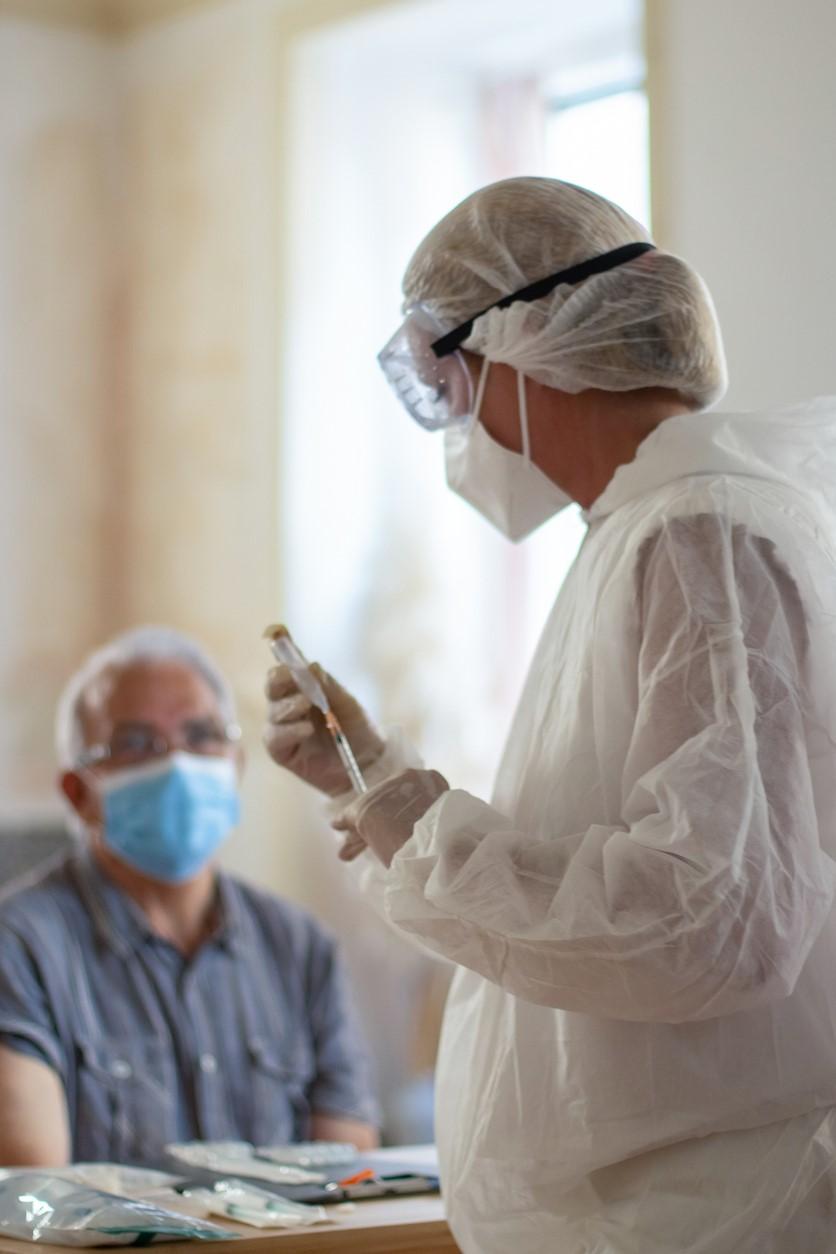Today, a Brown University–led team reports in JAMA Network Open that older people are at lower risk of adverse events after receipt of the Moderna COVID-19 vaccine than the Pfizer/BioNTech version but emphasizes that the overall risk is very low with both mRNA vaccines.
The Moderna vaccine was also tied to a 14% lower risk of contracting COVID-19 in this age-group.
The researchers used a linked database of community pharmacy and Medicare claims data representing more than half of the US Medicare population to conduct the largest head-to-head comparison of the risk of 12 adverse events in the 28 days after receipt of a first dose of the Moderna or Pfizer vaccine from December 11, 2020, to July 11, 2021.
The study was a collaboration with Hebrew SeniorLife, which is enabling mass monitoring of the long-term safety and effectiveness of COVID-19 vaccines among Medicare beneficiaries through CVS and Walgreens pharmacies.
Participants included 6,388,196 nonfrail, prefrail, and frail community-dwelling adults aged 66 and older. Average age was 76.3 years, 59.4% were women, 86.5% were White, 38.1% were categorized as prefrail, and 6.0% were considered frail. The most common underlying illnesses were diabetes (24.3%), congestive heart failure (11.9%), and cancer (15.1%).
"Current evidence generalizes poorly to older adults, lacks sufficient adjustment, and inadequately captures events shortly after vaccination," the study authors wrote, noting that several vaccine-related adverse events can also be related to COVID-19 infection.
"Additionally, no studies to date have explored potential variation in comparative vaccine safety across subgroups with frailty or an increased risk of adverse events, information that would be useful for tailoring clinical decisions," they added.
Overall risk less than 1%
While the risk of all outcomes was less than 1.0% in both Moderna and Pfizer recipients, adjusted models showed that Moderna was tied to a lower risk of pulmonary embolism (blood clots in the lungs; adjusted risk ratio [aRR], 0.96; risk difference [RD], 9 events per 100,000 people), and other adverse events in subgroup analyses (eg, 11.0% lower risk of thrombocytopenia purpura [a rare blood disorder] among nonfrail participants).
The Moderna vaccine was also linked to a 14% lower risk of COVID-19 (RR, 0.86), with a lower benefit seen in frail seniors (RR, 0.94). An interaction between frailty and vaccination was seen for facial nerve palsy and thrombocytopenia purpura, with the Moderna version showing a 14.0% and 11.0% lower risk of both outcomes among nonfrail participants, respectively.
A gradient across frailty categories was seen for several outcomes. For instance, in nonfrail participants, Moderna was tied to a 6.0% lower risk of pulmonary embolism compared with Pfizer (RR, 0.94). This benefit was gradually attenuated in prefrail (RR, 0.97) and frail (RR, 1.00) participants.
The risk of each adverse event was higher in participants with a history of that condition. For example, those who received the Moderna vaccine with no history of deep vein thrombosis had a lower risk of incident deep vein thrombosis than Pfizer participants (RR, 0.94).
Vaccination safer than COVID infection
"Immunization with either mRNA vaccine is substantially better and safer than not being vaccinated at all," lead study author Daniel Harris, PhD, said in a Brown University news release. "But in an ideal world where we can have a choice between which vaccine product is used, we wanted to see whether one vaccine was associated with better performance for older adults and those with increased frailty."
The results of this study can help public health experts weigh which mRNA vaccine might be preferred for older adults and older subgroups, such as those with increased frailty.
The improved safety of the Moderna vaccine for adverse events such as pulmonary embolism could have been the result of its greater protection against COVID-19, particularly for nonfrail older adults.
But the researchers couldn't definitively conclude whether the differences in adverse events were due to safety or effectiveness, and they recommended more research in this area. Because participants had received only the first dose of an mRNA vaccine, similar comparisons for subsequent doses could be done.
"You can imagine regularly updating these types of analyses as new vaccines are developed," Harris said. "Depending on which one comes out on top, even on a very small scale, that may have big implications at the population level and render a preference for that particular vaccine."
"The results of this study can help public health experts weigh which mRNA vaccine might be preferred for older adults and older subgroups, such as those with increased frailty," Harris added.



















